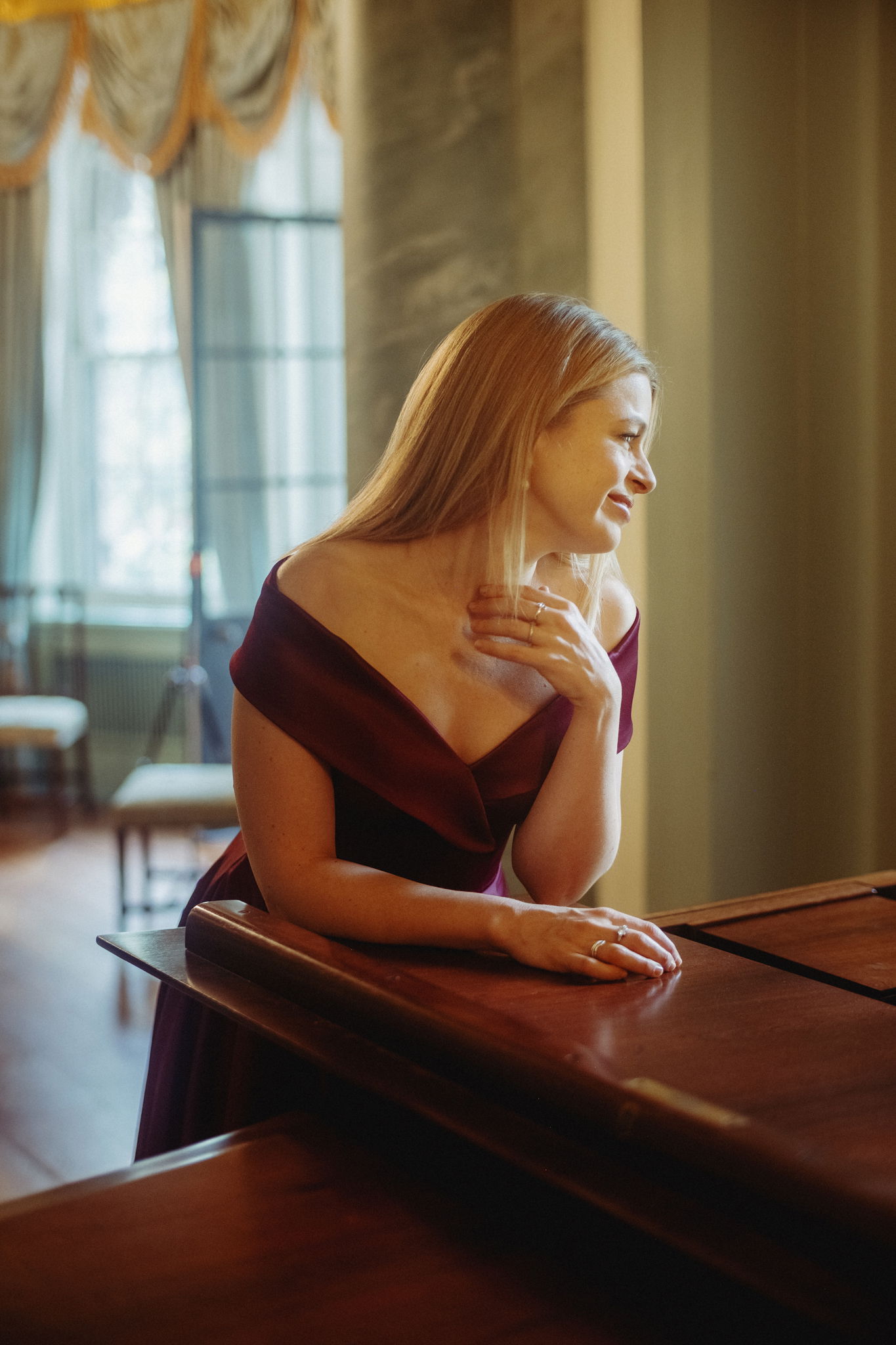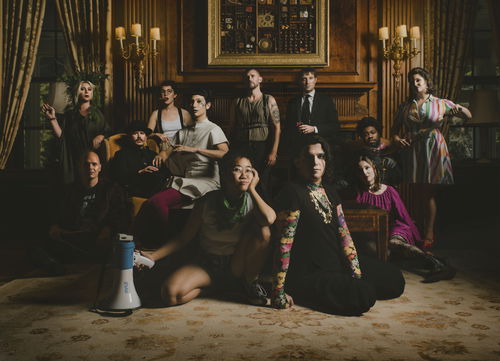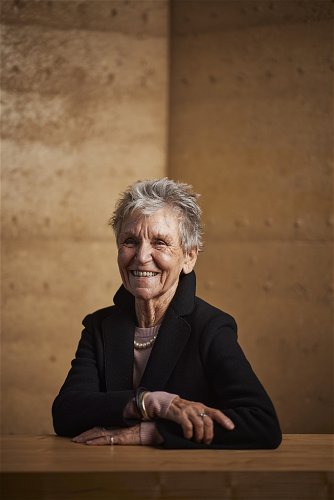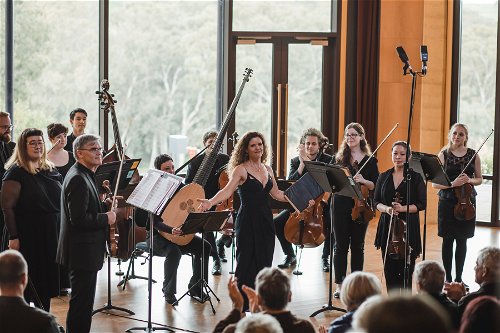 Simon Pauly.jpg)
AN INTERVIEW WITH SIOBHAN STAGG
BY RACHEL BRUERVILLE
On Sunday 21 July, Berlin-based Australian soprano Siobhan Stagg returns to UKARIA for the first time since 2020, presenting Echoed Voices, a program devised with South African pianist Nico de Villiers.
In 2022, Siobhan and Nico recorded Voices – the first album dedicated solely to the songs of Dutch/American composer Richard Hageman (1881–1966). Their recital will feature their favourite works from the album, alongside songs by Richard Strauss and Henri Duparc.
Rachel Bruerville, our Senior Communications Coordinator, chatted with Siobhan about how this album came to be, and what we can expect from this special performance.
Thanks so much Siobhan for sharing your insights with us. How did you first come across the songs of Richard Hageman?
I remember the beginning of this project very clearly – I was finishing a rehearsal of Der Rosenkavalier [Richard Strauss] at the Staatsoper Unter den Linden here in Berlin, and I had a phone call from Nico who I hadn’t spoken to for several years. We knew each other from a summer school in Graz (Austria) which I attended in 2011 as a student, and Nico was there as a member of staff.
He said, ‘Siobhan, I’ve got this recording project coming up in Belgium, and the original soprano has had to withdraw… would you be interested in recording this CD with me?’
I didn’t know any of the songs and it was a really busy time, but I promised Nico I would think about it. That night he sent the music through, and as soon as I listened I had a visceral reaction… sometimes when you hear music that is new to you, it takes repeated listens to fully appreciate the layers, but as soon as I saw and heard these songs I thought – yes, I want to do whatever I can to be part of this project. This is beautiful, often tear-jerking music, and I felt intuitively that I had something to say with these melodies and texts.

It sounds like it was meant to be!
Yes! We managed to move the initial recording schedule to fit with my diary, so everything slotted into place.
Nico is a world expert on Richard Hageman – he wrote his PhD on the composer and co-wrote his biography. He’s since founded the Richard Hageman Society, with Thomas Hampson as Patron. Nico has spent the last decade trawling through university libraries across the world to find these scores, as they’ve never been published in one collected edition. It’s been a labour of love – much of his professional life has been dedicated to this ‘Indiana Jones crusade’ if you will, committed to uncovering these hidden gems and bringing them back to life. I think there are over sixty songs in total, and we recorded around twenty-five over three days in the studio in Belgium. Many of the songs on the album are world premiere recordings.
Had Nico already chosen the songs for the album when he approached you, or was there discussion between you about that?
Because Nico knows the repertoire so well, he knew which of the songs would suit my voice. There was some discussion – I may have said ‘This one doesn’t suit me as well as this other one’ – but he already knew very well what would work. He plans to record the other Hageman songs for baritone, tenor, mezzo-soprano, but that will come later.
Nico knows voices extremely well – he taught for a long time at Guildhall School of Music in London and is currently Deputy Head of Vocal Studies at the Royal Northern College of Music in Manchester. He is a dream collaborator.
What makes a good collaboration?
I think that when you really click with another musician, you can almost finish each other’s sentences – it’s about offering and reacting flexibly in real time. When I offered something fresh in the recording, he responded immediately with flair. We have a really spontaneous and joyful understanding of one another’s musical intentions.
How different do you think these live recitals together will be, compared to your time in the recording studio?
The main difference will be that we will only have to do the set once in a day! Nico and I gave a CD launch concert last year in Leeuwarden (the Netherlands), which is Hageman’s birth town. It was quite special to retrace his footsteps. We also performed a few of the songs in Amsterdam Concertgebouw for Dutch national radio, but this Australian trip will be our first extended recital tour together.
We’re presenting this recital in several places – Sydney, Canberra, my hometown of Mildura, Brisbane, and Hobart, as well as UKARIA – and the nice thing about repeating the program is that it will keep developing. It will be a little bit different each time, I’m sure.
A tour that comes after a recording session will always benefit, because in the studio, you repeat the material so often that your palette of possibilities expands exponentially. The aural painting we offer at UKARIA will be fresh, but will be informed by that deep rainbow of artistic choices that the recording sessions uncovered.
 Matthew Johnson[34].JPG?class=twocol)
You’ll be presenting the Hageman songs alongside works by Richard Strauss and Henri Duparc. How were those choices made?
That happened really organically during rehearsals. From the phrasing, the breathing, the sentiment of the Hageman songs – sometimes I would be reminded of songs by Strauss and Duparc. When I shared this with Nico, he said that he often had that sensation too, and the more we thought about it, the more we discovered parallels.
As an example, one of the songs by Hageman is called Bettlerliebe, which has an extended piano introduction that is somehow reminiscent to the famous introduction of Morgen by Richard Strauss. They’re different of course, but they’re almost like inverted versions of each other. The storylines are kind of inverted too – Bettlerliebe is about unrequited love which was never realised, whereas Morgen speaks of a solid lifelong partnership. It struck us that if the lovers in Morgen had never met, Betterliebe might be the alternate universe version of their story.
The more we searched, the more ‘echoed voices’ we found between the works of Hageman, Duparc and Strauss. The three musicians did overlap in their timelines, and one hears the romantic influence in all three. They each have a deep understanding of how to set poetry to music and make the voice shine.
What are you most looking forward to about coming back to UKARIA?
I have such fond memories of performing at UKARIA in 2020 (Adelaide Festival, Chamber Landscapes) – it was one of my final performances before the world shut down. It’s always nice for me to perform close to Adelaide, because while I grew up in Mildura, most of my family has now ended up in Adelaide, including my parents and younger brother. It feels like something of an adopted home.
Honestly, there’s nothing like the amazing view through the glass panes behind the piano in that beautiful hall at UKARIA. I’m really looking forward to sharing that with Nico on his first visit.


.jpg?class=grid1)








